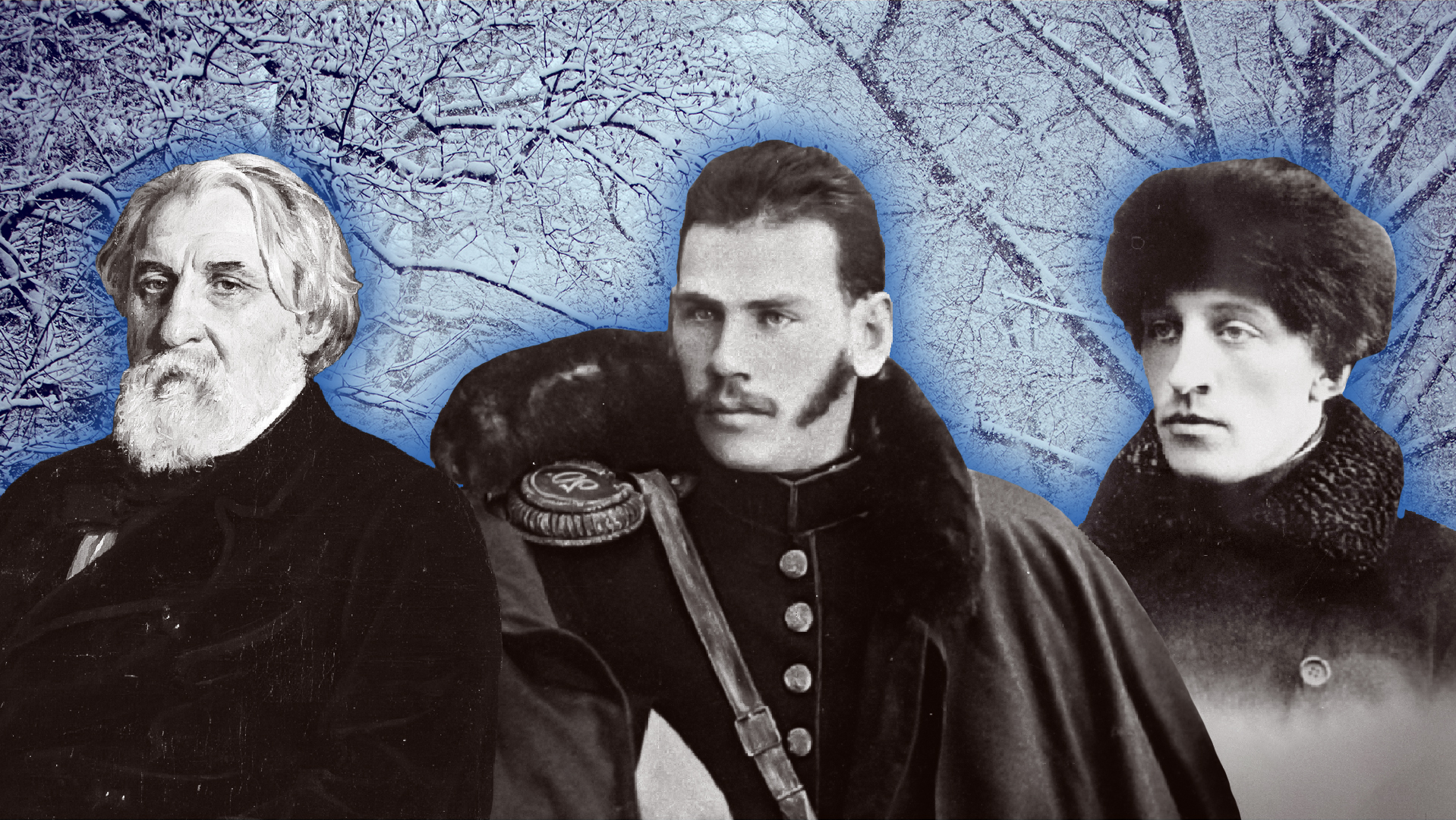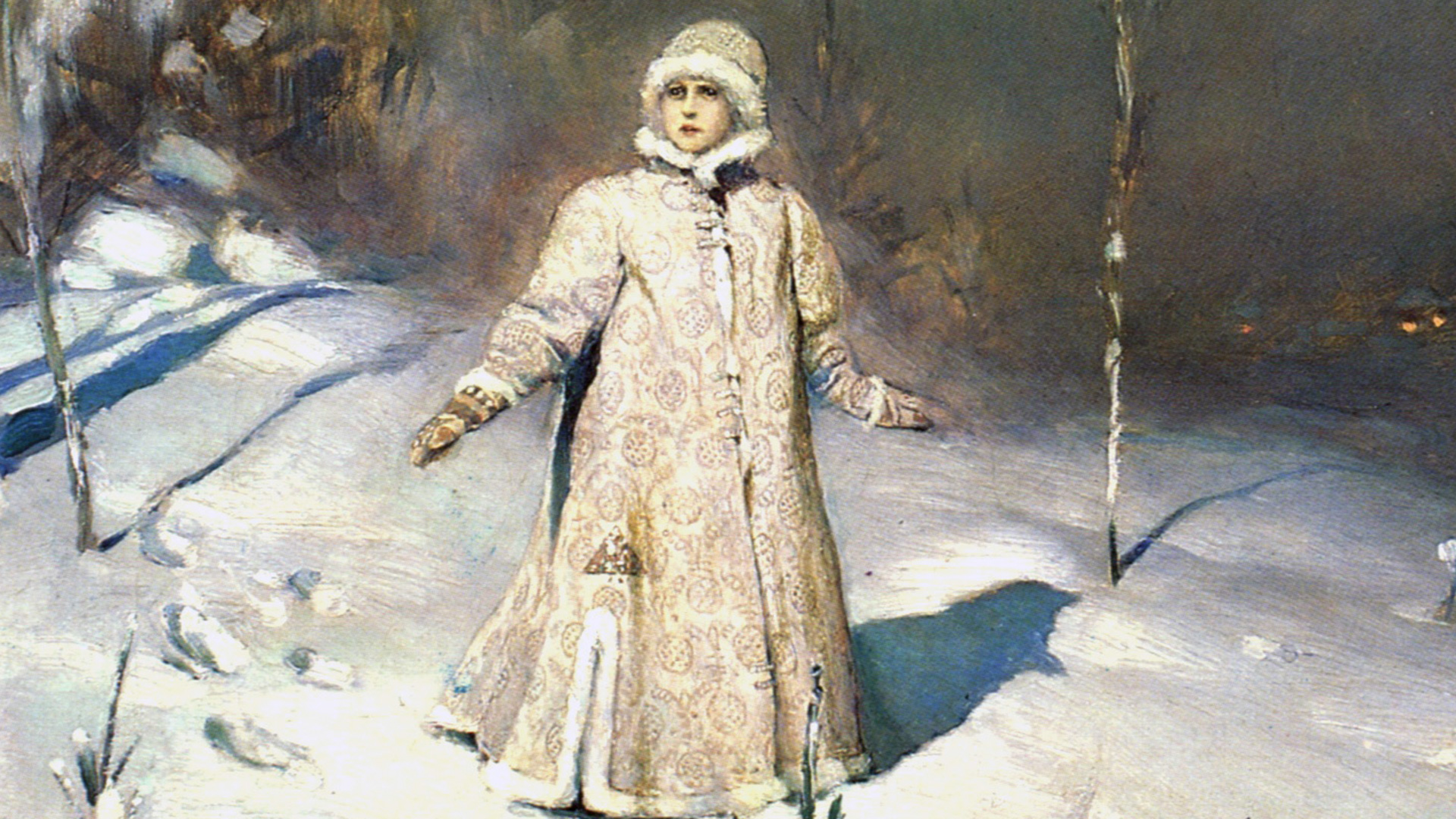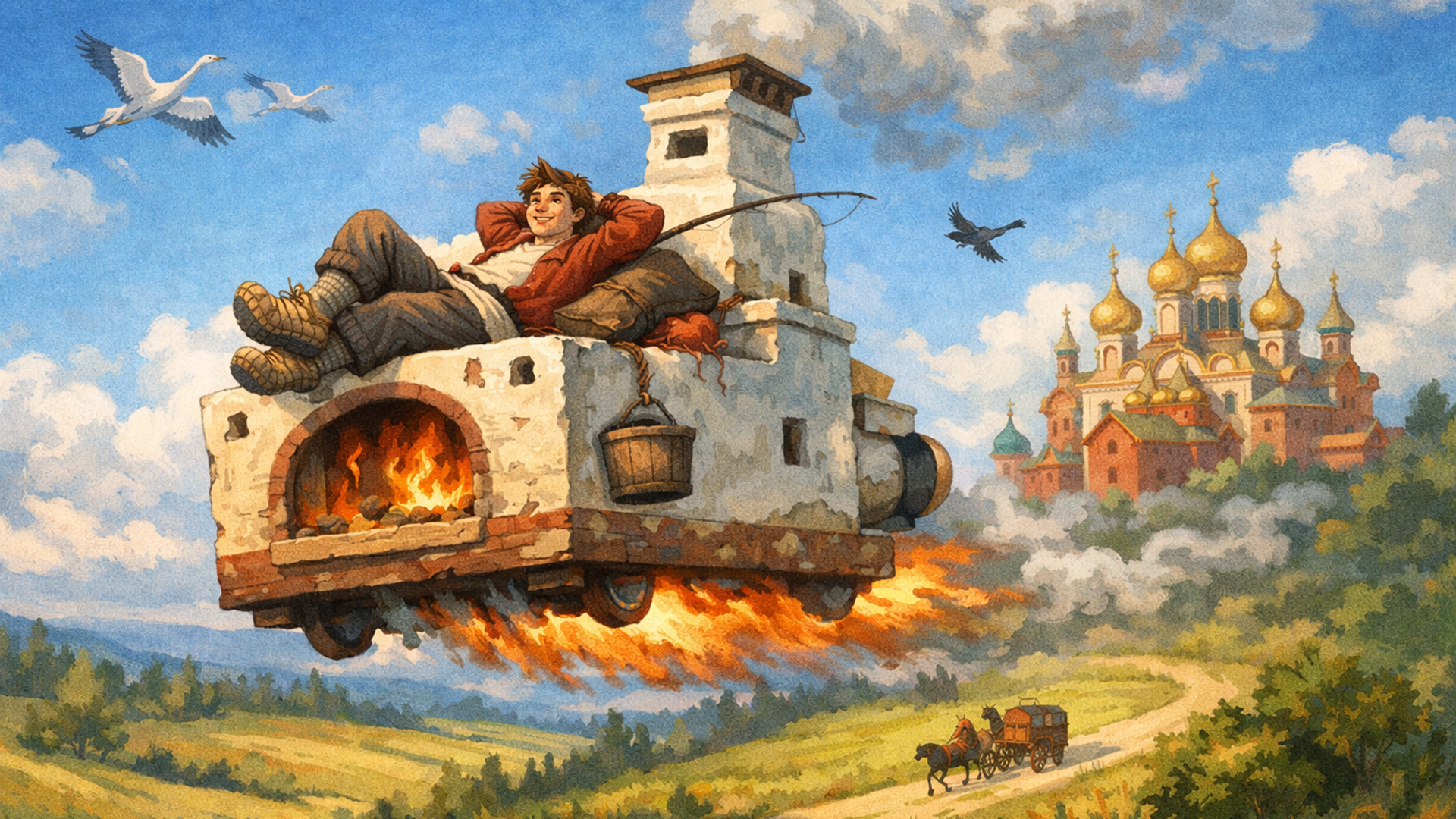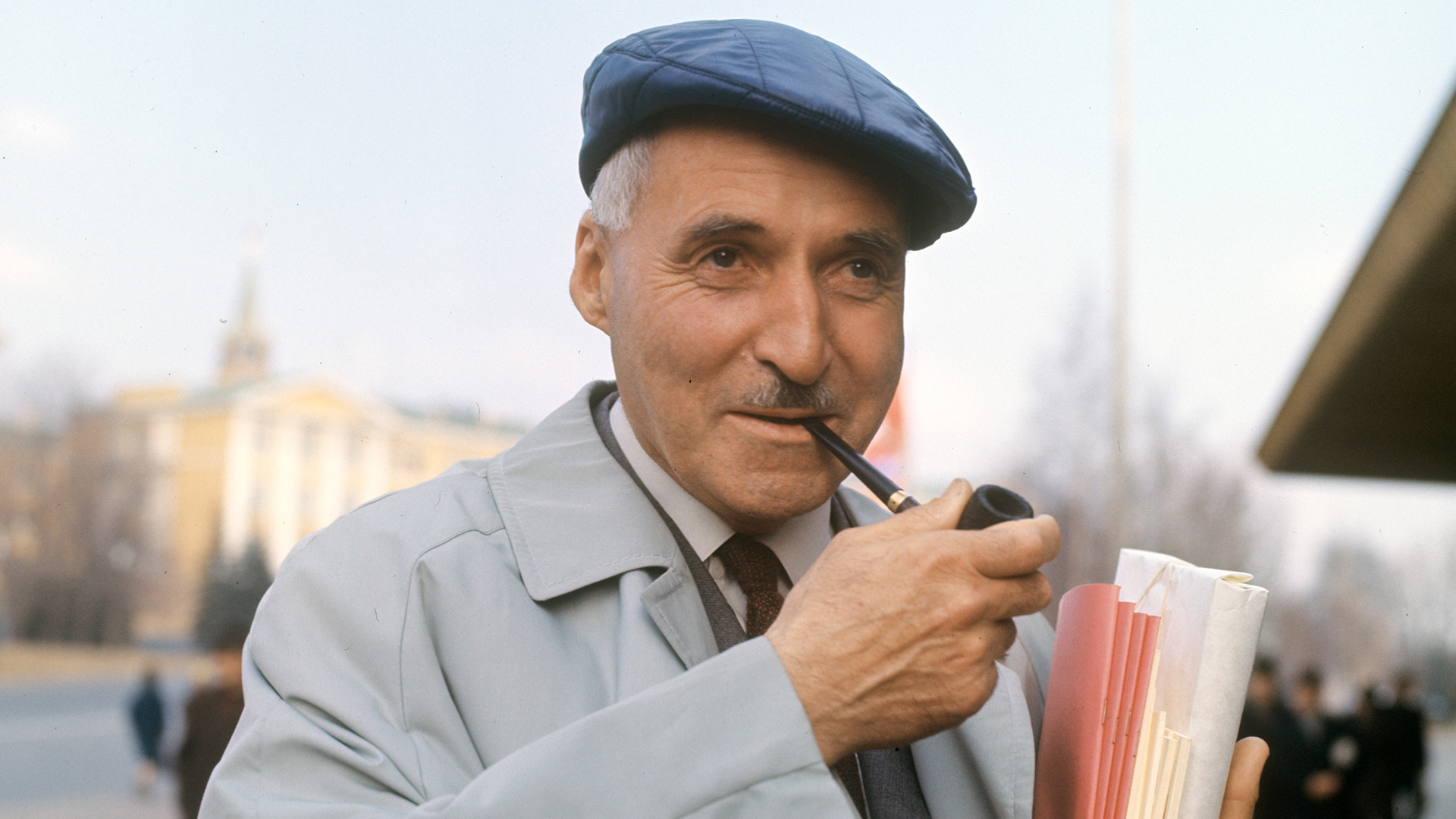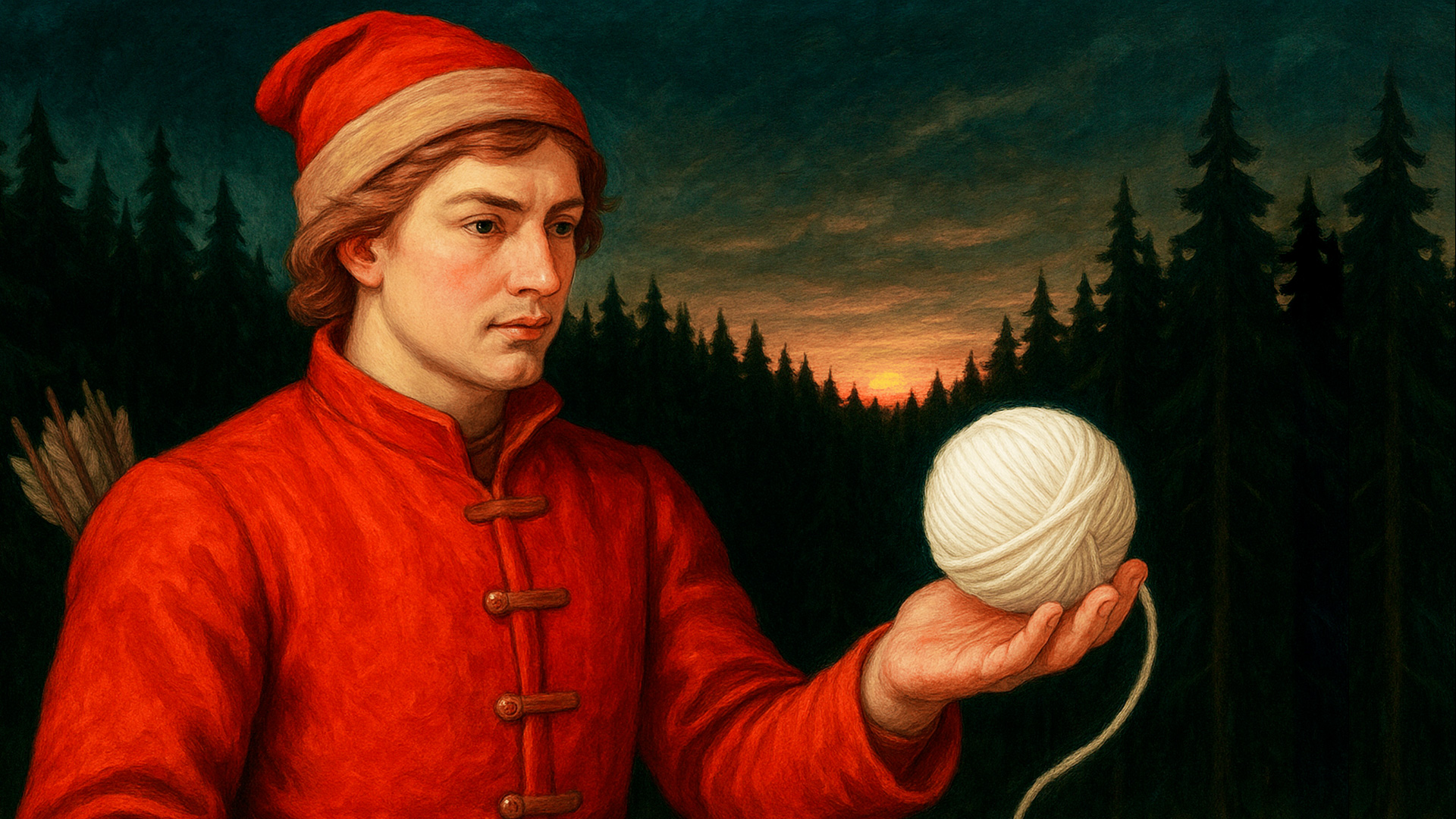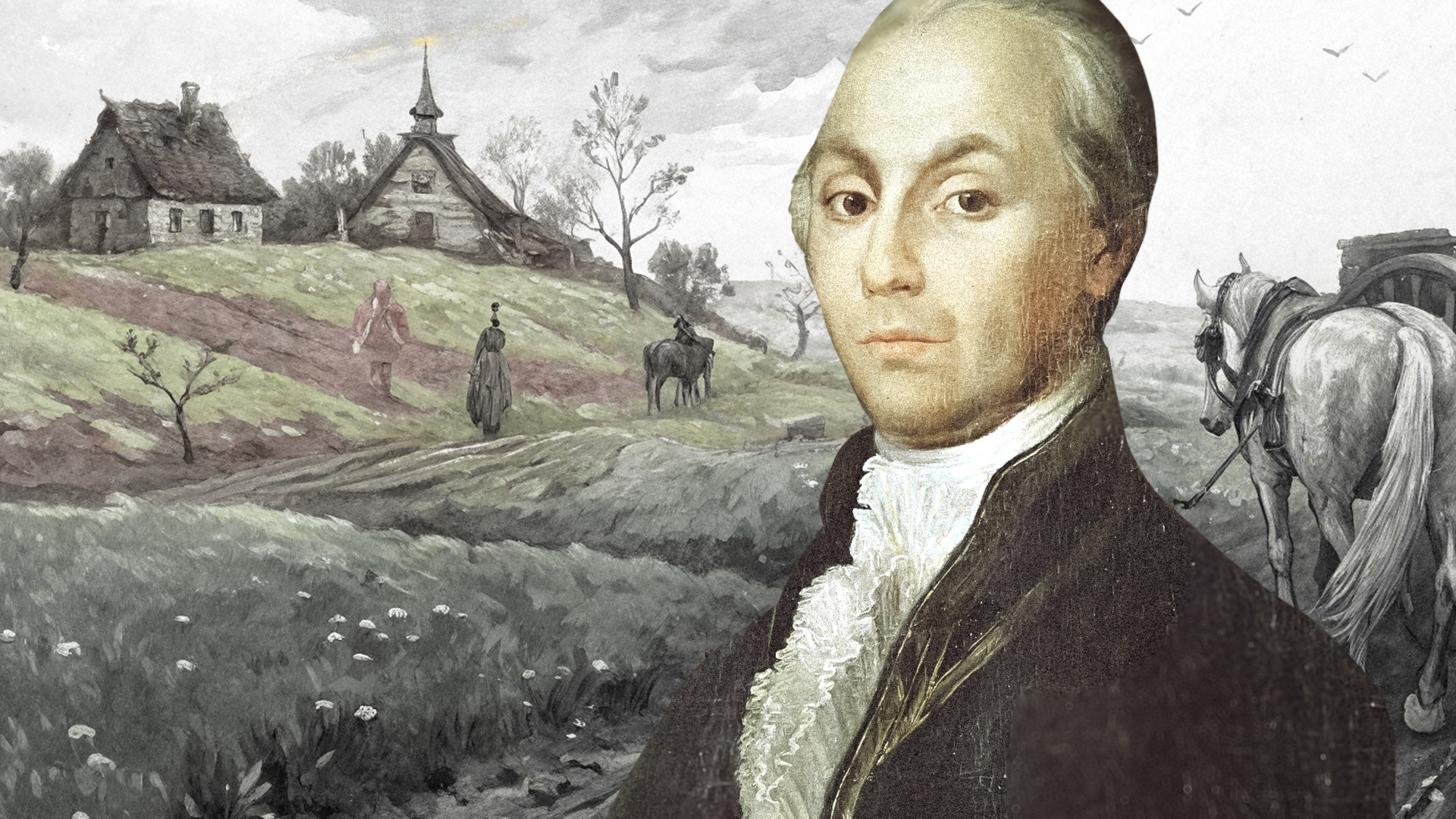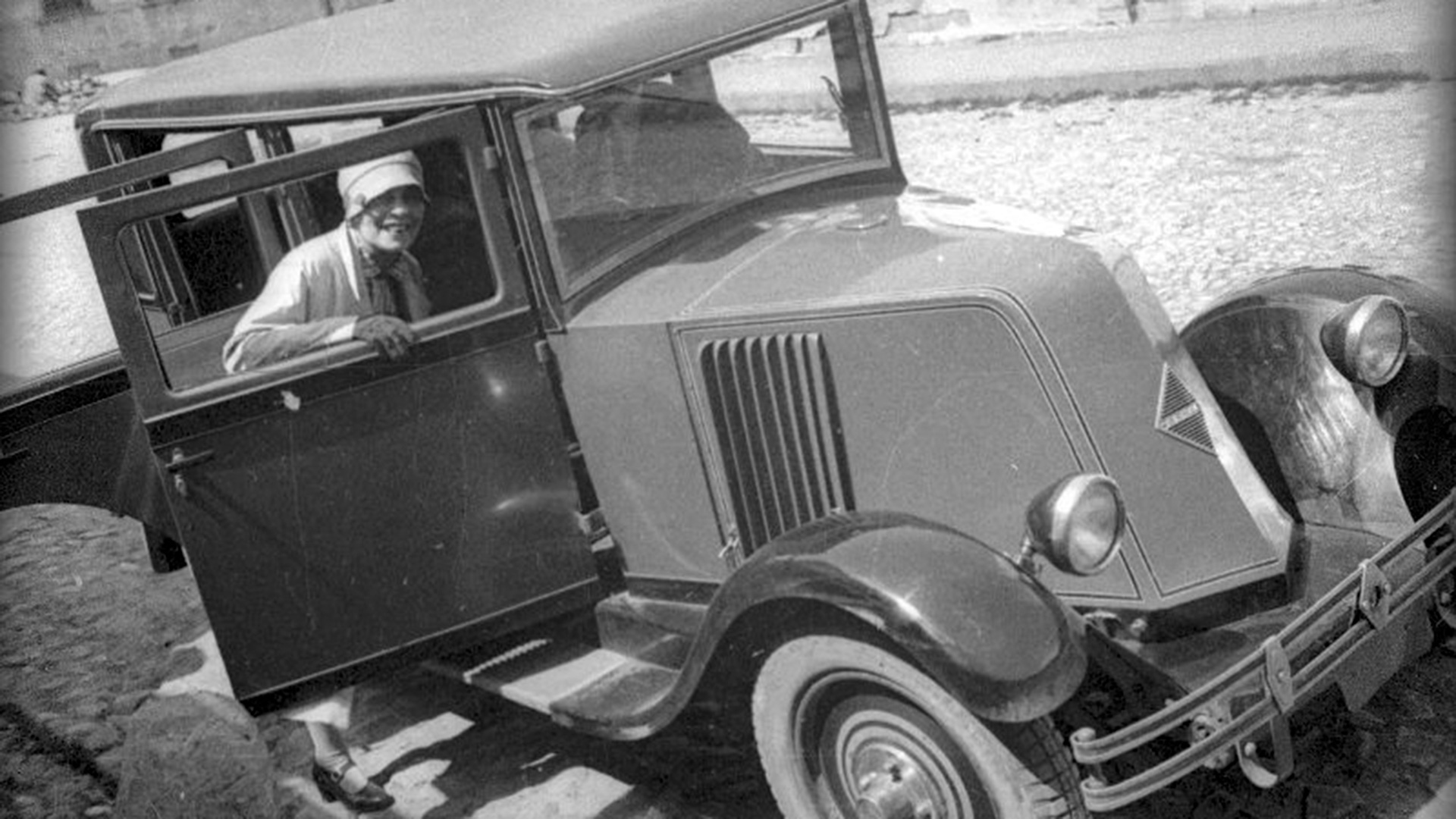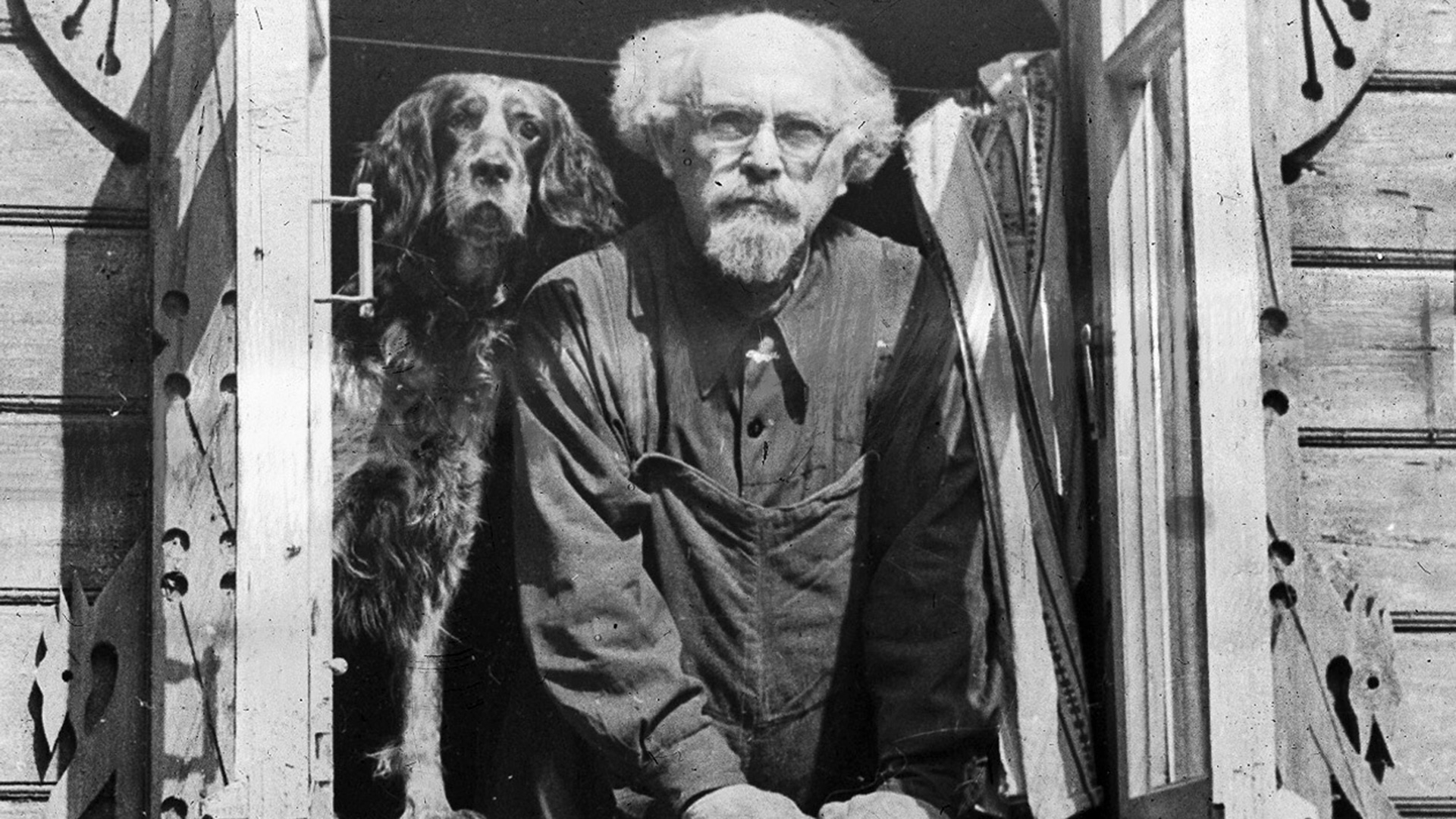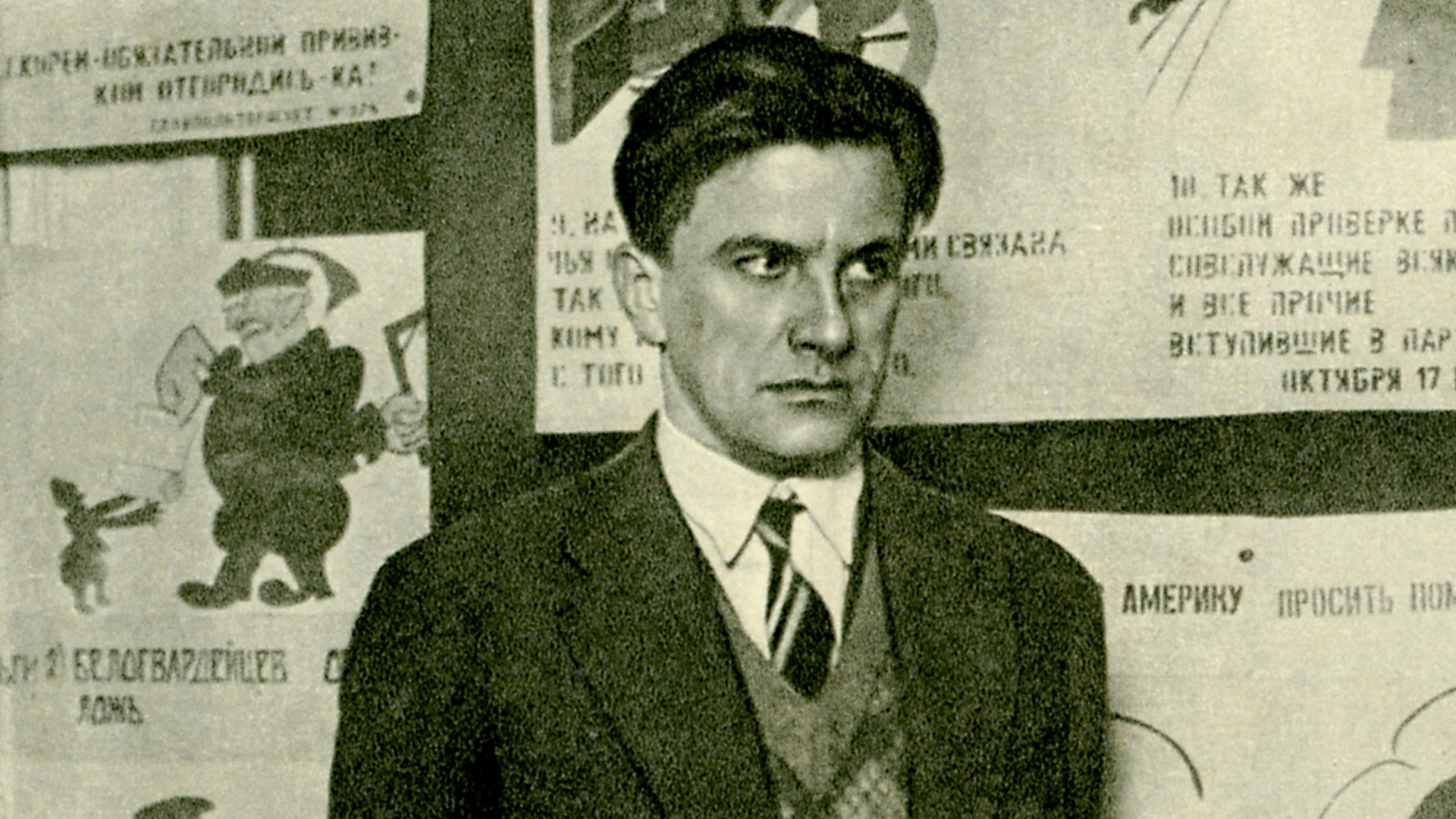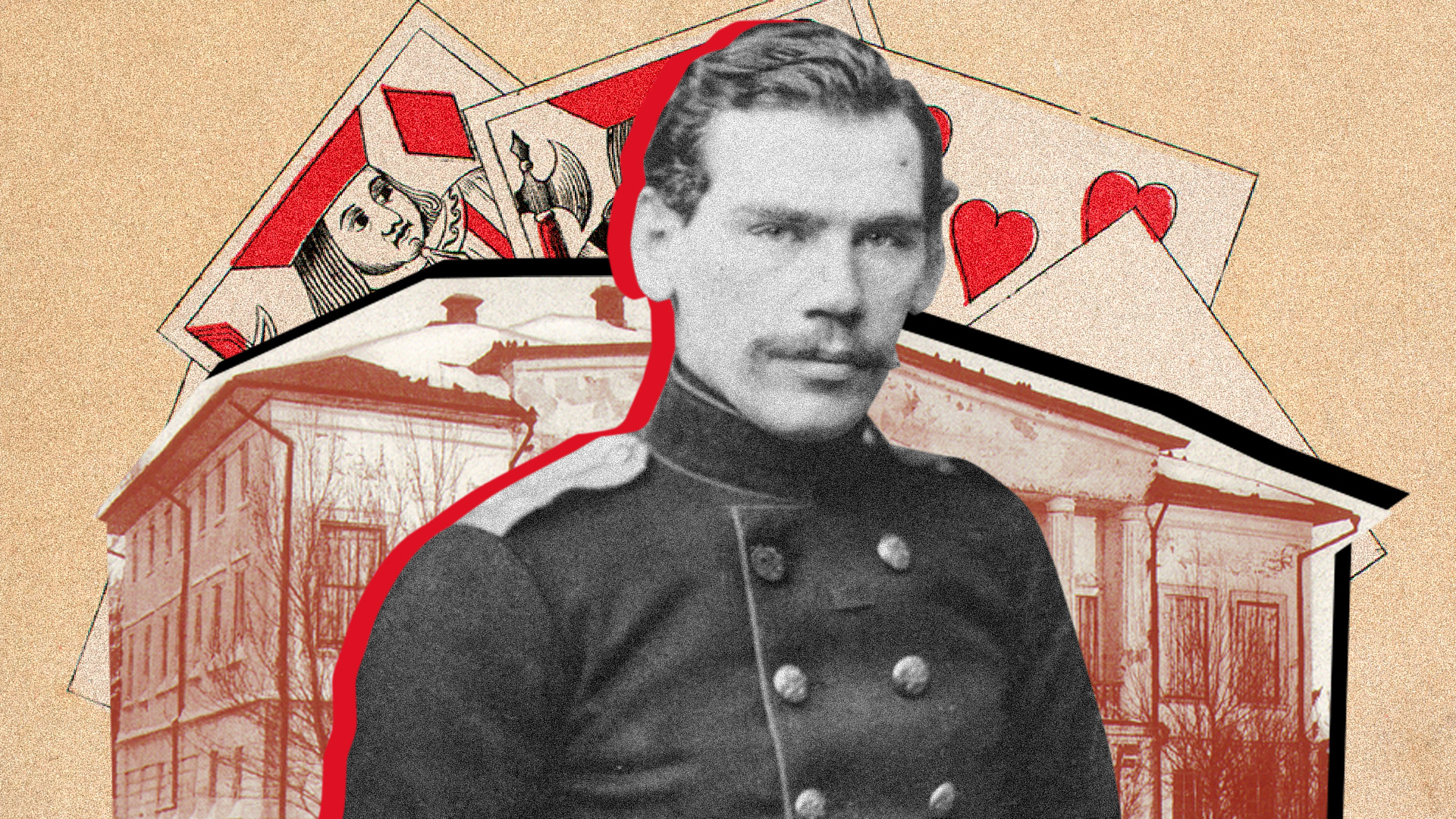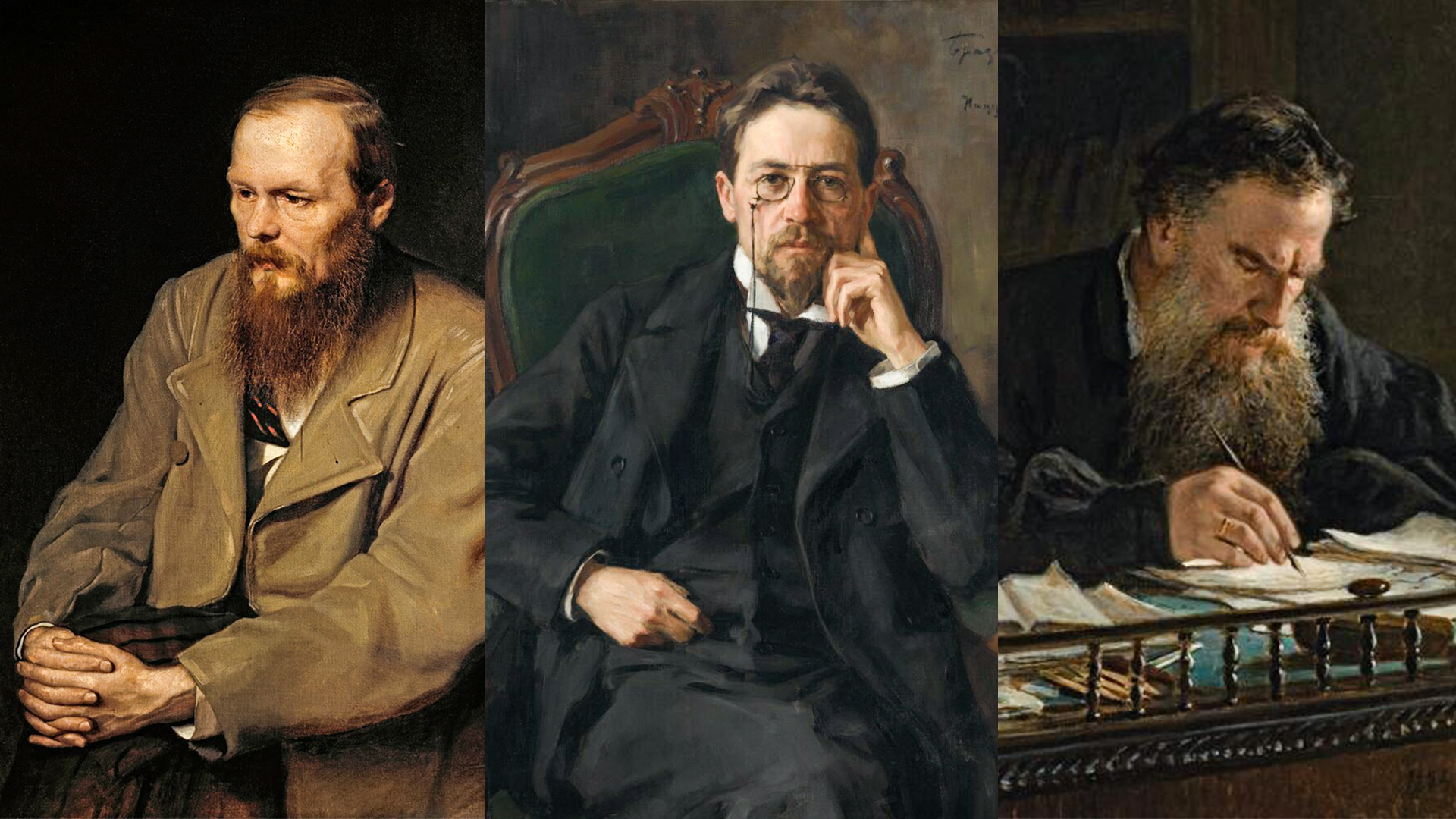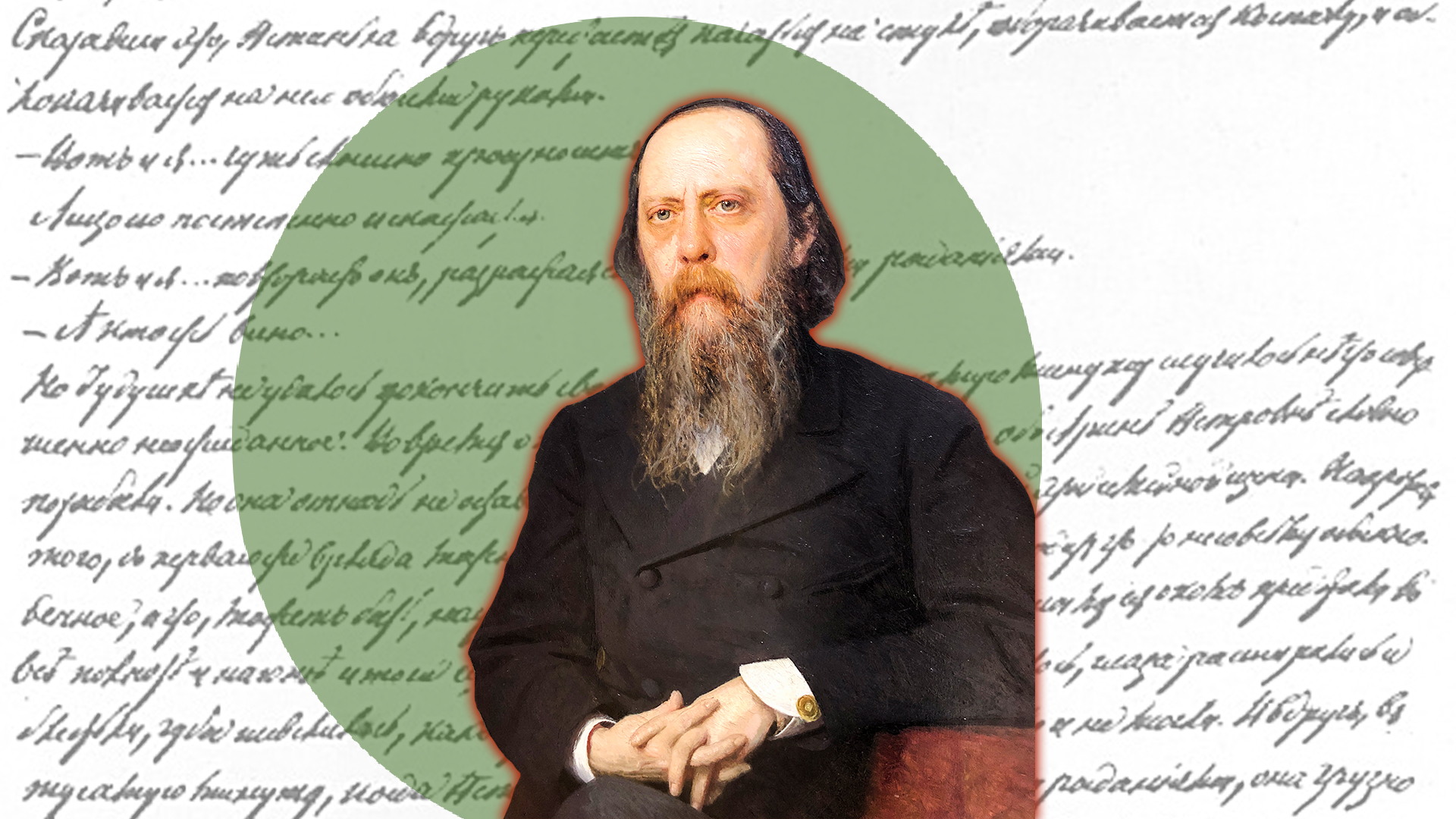
6 Russian mystical love stories
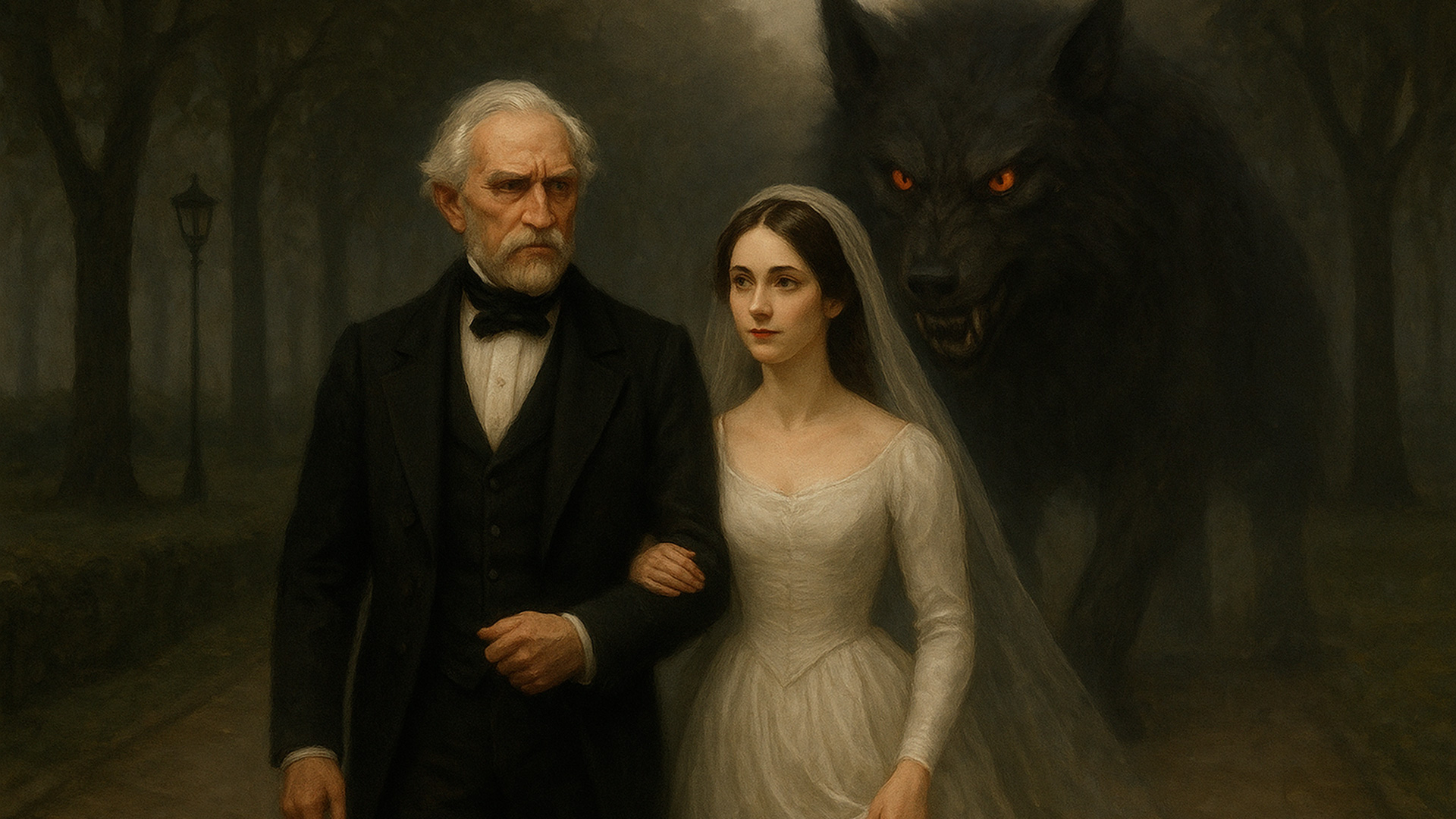
1. Russian folk tale ‘The Feather of Finist the Bright Falcon’
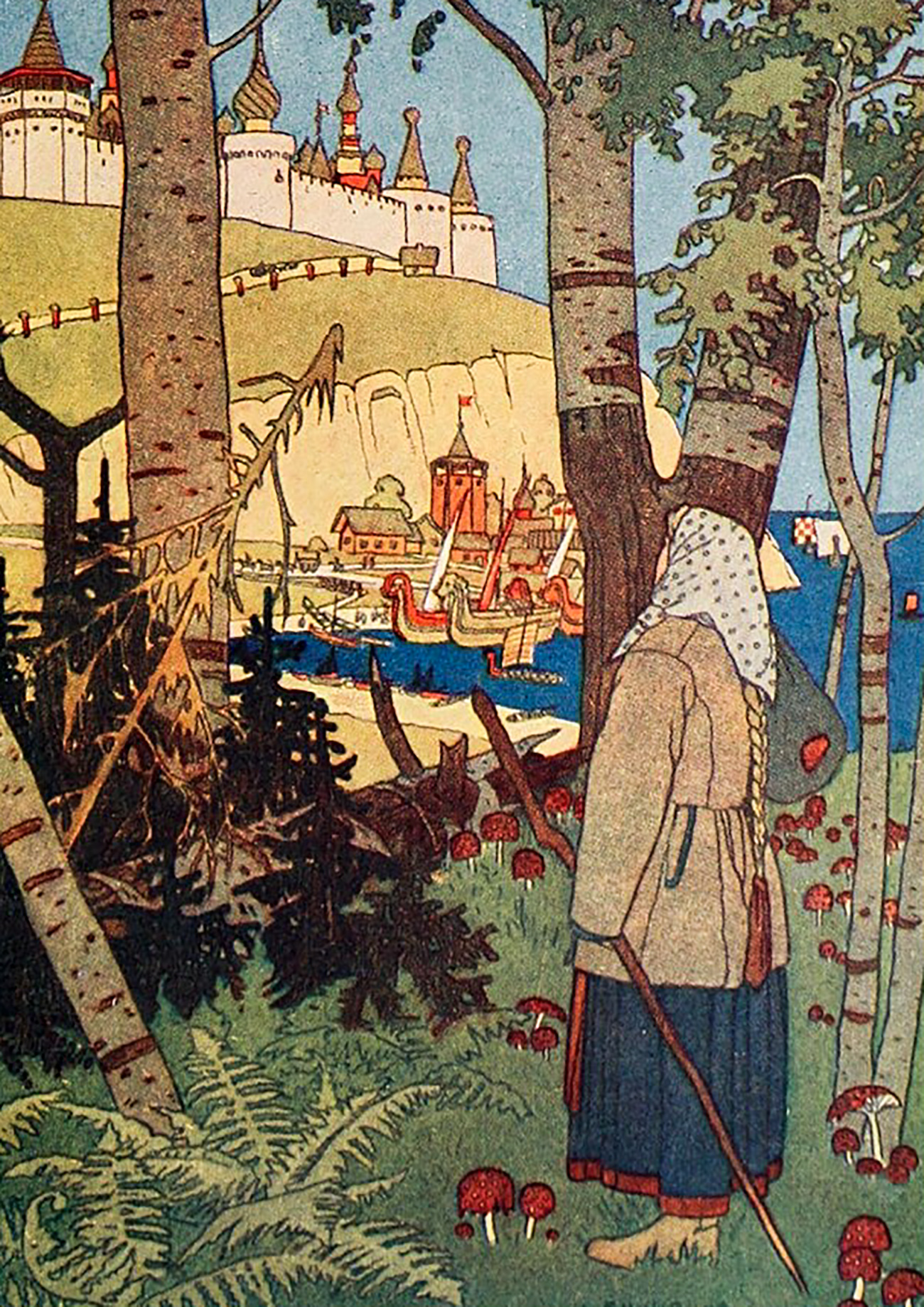
The beginning is reminiscent of Charles Perrault's ‘Beauty and the Beast’: A father brings back gifts from his travels for his three daughters, gifts they requested. The youngest didn't want any precious stones or luxurious dresses — only a feather from Finist the Bright Falcon. Every evening, it transforms into a handsome young man. The following morning, it transforms back into a falcon and flies away, returning only after dark. The older sisters decide to uncover the secret and stud the window in their sister's room with knives and sharp needles, which Finist cuts itself on. Bloodied, he flies away to distant lands. The girl has to not only find him, but also win him back from another girl.
The tale seems far from childish: it features a complex relationship between sisters, a broken heart, a struggle for a loved one and, at the same time, a mystical story about a shapeshifter chosen one.
2. Vasily Zhukovsky. ‘Svetlana’
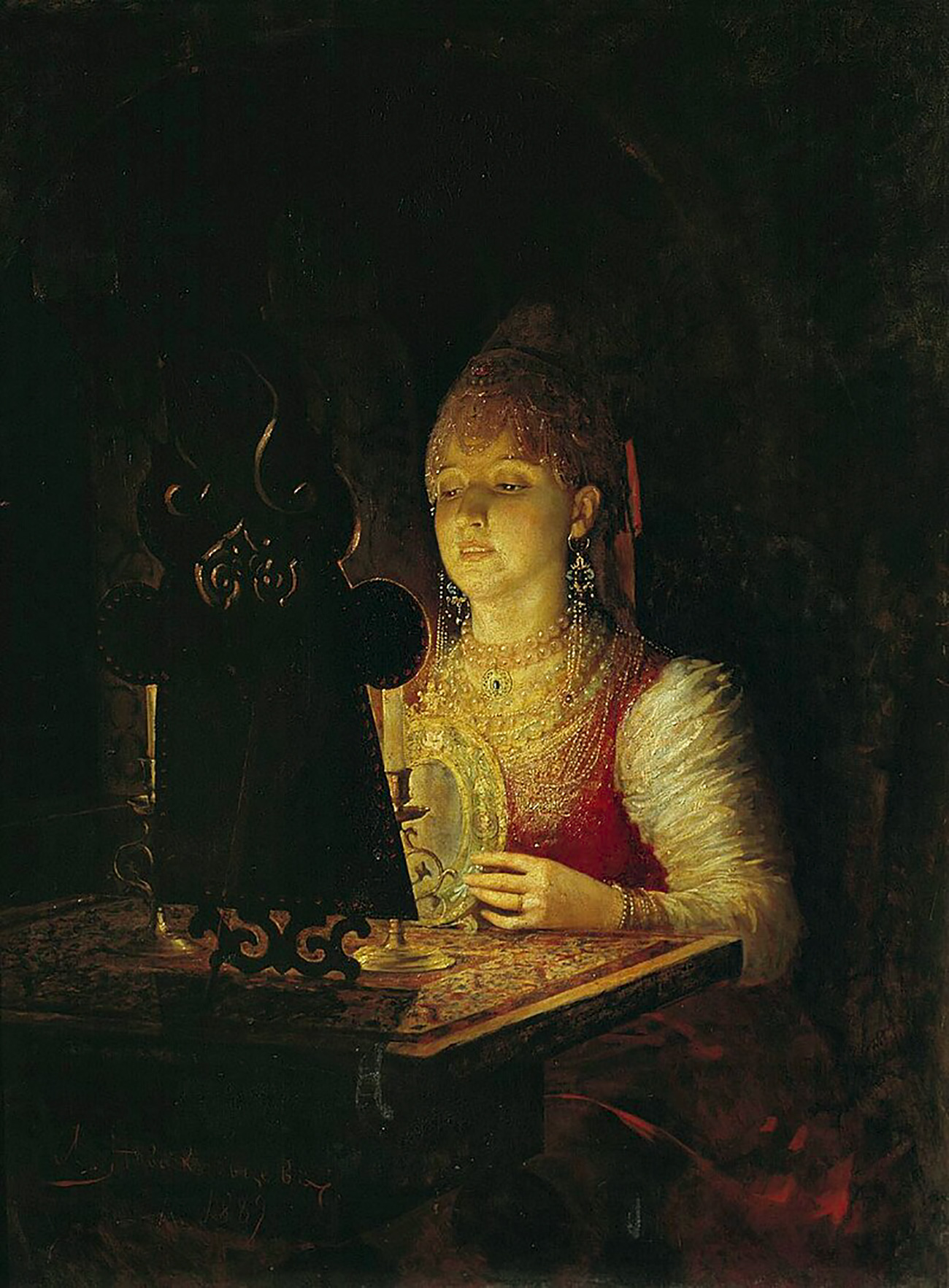
"Once upon an Epiphany evening, the girls were telling their fortunes." With these words begins one of the most romantic and eerie ballads created by Vasily Zhukovsky. The fairytale plot is spiced with a touch of sadness: the heroines of the poem are telling their fortunes about their betrothed and only Svetlana does not participate in the rituals. There has been no news from her fiancé for a year. But, curiosity gets the better of her: left alone, the girl decides to tell her fortune and, sure enough, her betrothed appears. Overjoyed, Svetlana goes with him to church; only there, instead of a festive hymn, a funeral prayer awaits her. The scenes shift like a kaleidoscope: the heroine is caught in a storm, then finds herself in a hut where her dead groom reaches out to her from a coffin on a table.
The plot is a ready-made horror movie. The poet, creating an adaptation of Gottfried Bürger's ‘Lenore’, transformed this story into the heroine's nightmare.
3. Ivan Bunin. ‘Ballad’
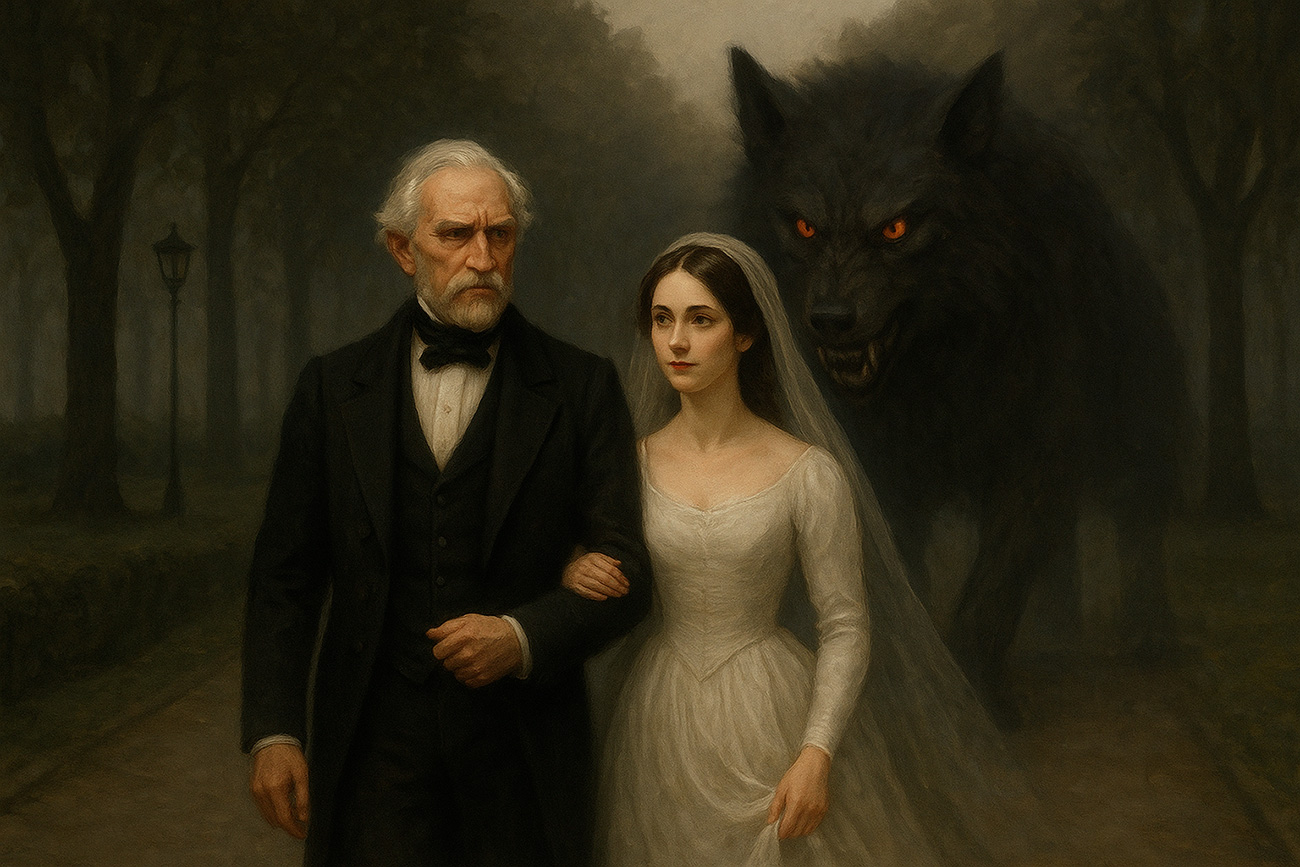
The story of "God's beast, God's wolf". A certain prince goes with his young wife to visit his father, who lives in a distant village. They head there to their misfortune: the old prince lusts after his daughter-in-law and when they decide to elope, he sets out in pursuit. The lovers have no one to come to their aid, but, suddenly, a huge wolf "with eyes like fire, red and a halo around its head" attacks the prince and slits his throat. With his last breath, he orders a huge effigy of the beast to be painted over his grave in the local church.
Ivan Bunin recalled that he created this story in a single sitting: He woke up, drank coffee, sat down at the table and began writing. It's unclear who the wolf was — a messenger of God, a punishing spirit or the prince's ancestor incarnated in animal form. But, it protected the lovers and punished the sinner.
4. Vladimir Odoevsky. ‘La Sylphide’
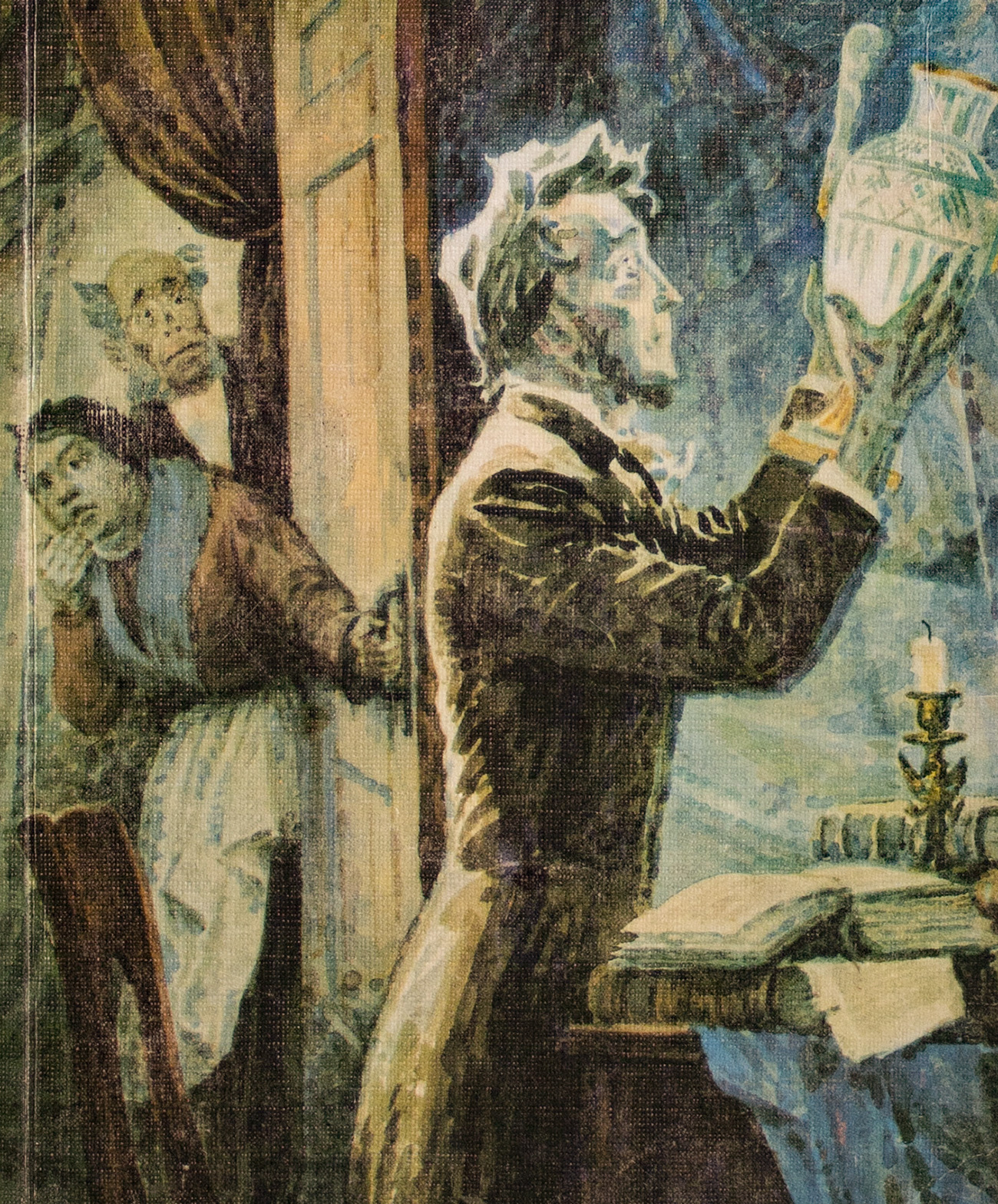
The protagonist, Platon Mikhailovich, moves into his deceased uncle’s house and soon discovers an entire library of books on alchemy and Kabbalah. Using a guide to summoning spirits, he soon believes that he has imprisoned a sylph in a vessel.
His infatuation develops into an obsession: having decided to "betroth" himself to the otherworldly being, the hero throws his turquoise ring into the vessel where she lives, which begins to change shape before his eyes. Soon, he completely forgets about the real world, including his engagement to his neighbor's daughter, completely absorbed in contemplating the miniature woman living in the vessel with water.
Vladimir Odoevsky was one of the first Russian science fiction writers and was fascinated by the occult. Perhaps, this is why his tale of glimpses of another world seems so plausible and the longing for it so genuine.
5. Nikolai Melgunov. ‘Who Is He?’
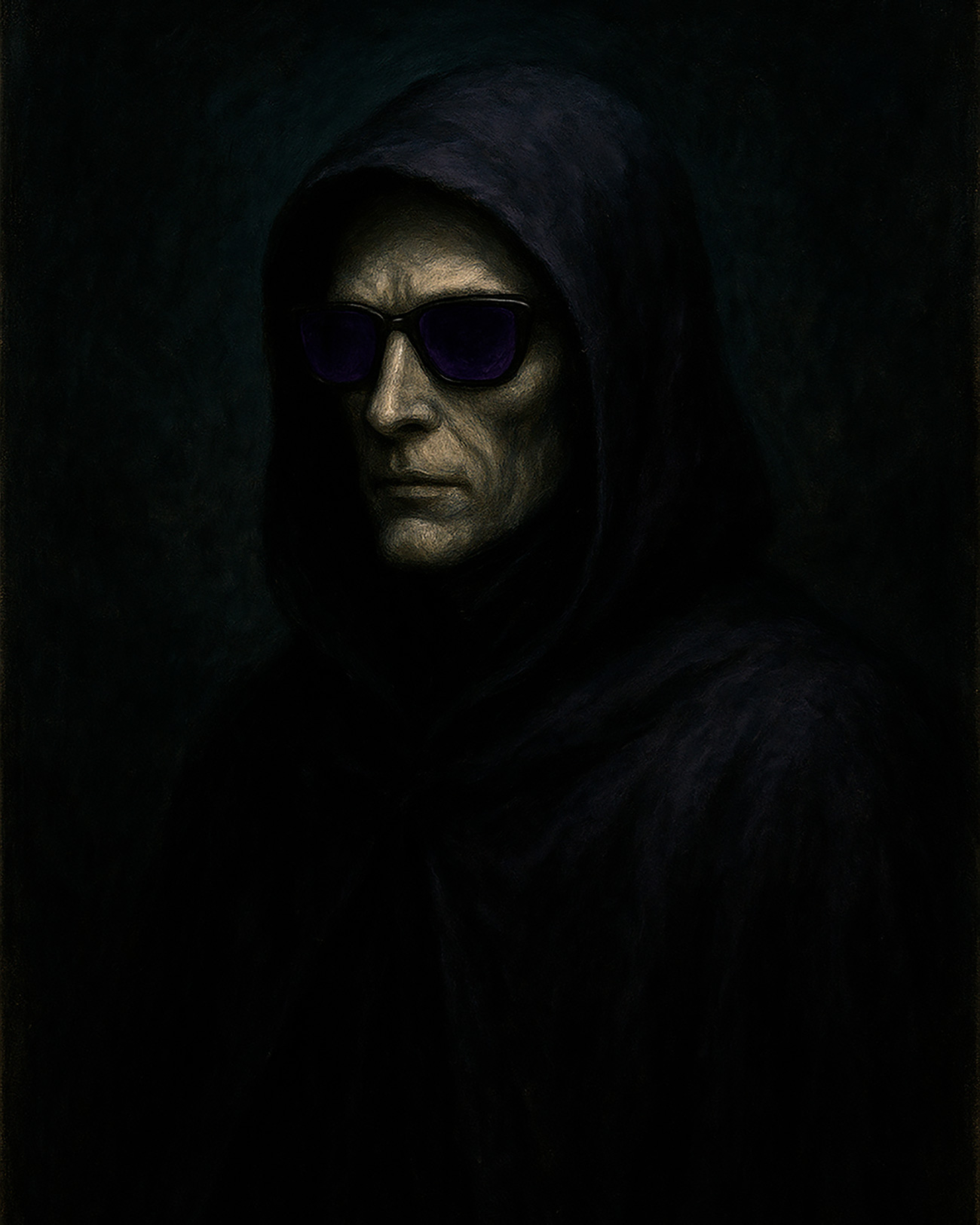
Nikolai Melgunov's debut novella tells the story of a mysterious stranger in purple glasses, about whom no one can say who he is — "an evil spirit, a ghost, a vampire, Mephistopheles or all of these?" His face and voice subtly change for each of the story's characters. Some see him as an old friend, the narrator as a recently deceased friend, while his inconsolable fiancée as a lover brought back to life. But everyone, as if hypnotized, follows him obediently.
The story is overflowing with devilry. There are sudden disappearances of the demonic hero, descriptions of a terrifying house where evil spirits frolic and even a terrible retribution for several years of life lost to the lover, who takes the form of a stranger in glasses.
6. Alexander Grin. ‘The Gray Car’
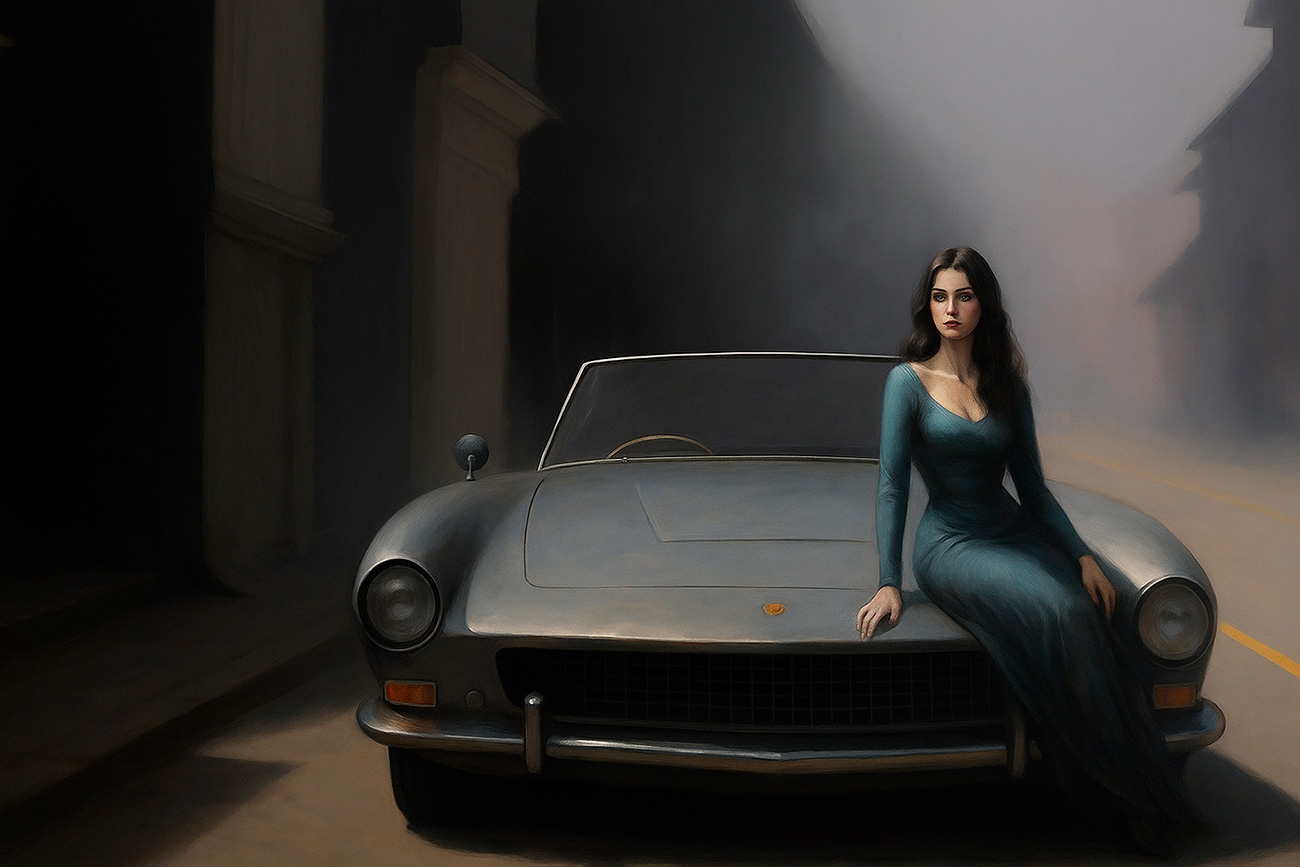
An inventor is in love with a beautiful woman named Corrida and hates cars, considering them animated monsters. He dreams of winning the girl's affections: to do this, she must die. After all, the girl is actually a living wax figure. Death will bring her renewal and true life.
Alexander Grin wrote this dark story in the early 1920s, in which machines hunt humans and dolls live ordinary human lives. Unlike his romantic ‘Scarlet Sails’, ‘The Gray Car’ is a story about the all-consuming horror of a dead world, where neither love nor hope can exist.


